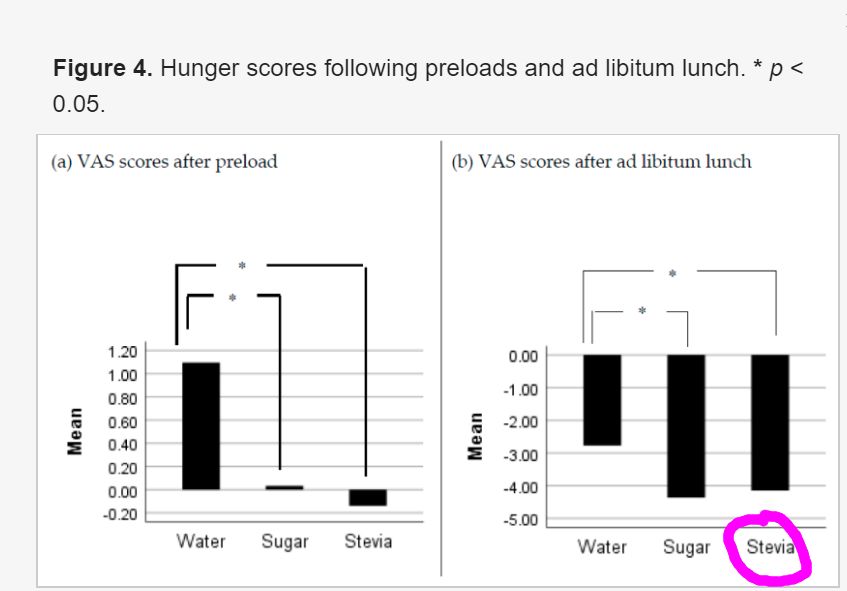Effects of Stevia Extract on Postprandial Glucose Response, Satiety and Energy Intake: A Three-Arm Crossover Trial
by Grace Farhat Nutrients 2019, 11(12), 3036;
Non-nutritive sweeteners (NNS) are suggested to lower energy intake in the diet, but they have been paradoxically involved in the epidemic of obesity and Type 2 diabetes. Stevia is the least studied sweetener. This study aims to investigate the effect of stevia on postprandial glucose levels, appetite and food intake.
Methods: 30 participants (20 females/10 males; 26.1 (10.56) years; body mass index (BMI) 23.44 (3.42) Kg/m2) took part in a three-arm crossover trial where they received preloads of water, sugar (60 g) and stevia (1 g) on three different days, followed by an ad libitum pizza lunch. Breakfast was standardised. A one-day diet diary was collected on each test day. Visual analogue scales (VAS) were used to assess subjective feelings of appetite. Blood glucose samples were collected at 30-min intervals until 120 min post lunch.
Results: Energy intake did not significantly differ between preloads for ad libitum meals (p = 0.78) and overall day (p = 0.33). VAS scores for hunger and desire to eat (DTE) were lower following stevia preload compared to water (p < 0.05). After adjusting for the sugar preload and calorie content, postprandial glucose levels did not significantly differ between interventions.
Conclusion: Stevia lowers appetite sensation and does not further increase food intake and postprandial glucose levels. It could be a useful strategy in obesity and diabetes prevention and management.














